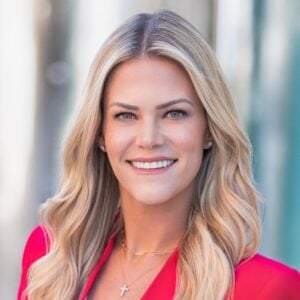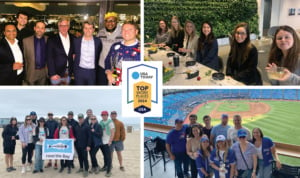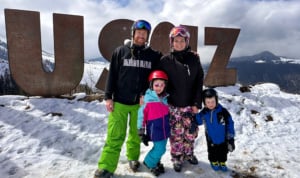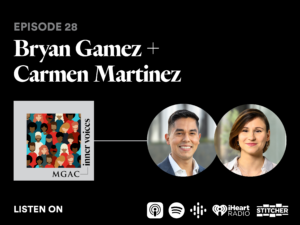MGAC Impacts: Analyn Apan on Meaningful Mentorship, Leaps of Faith, and the Art of Cost Management
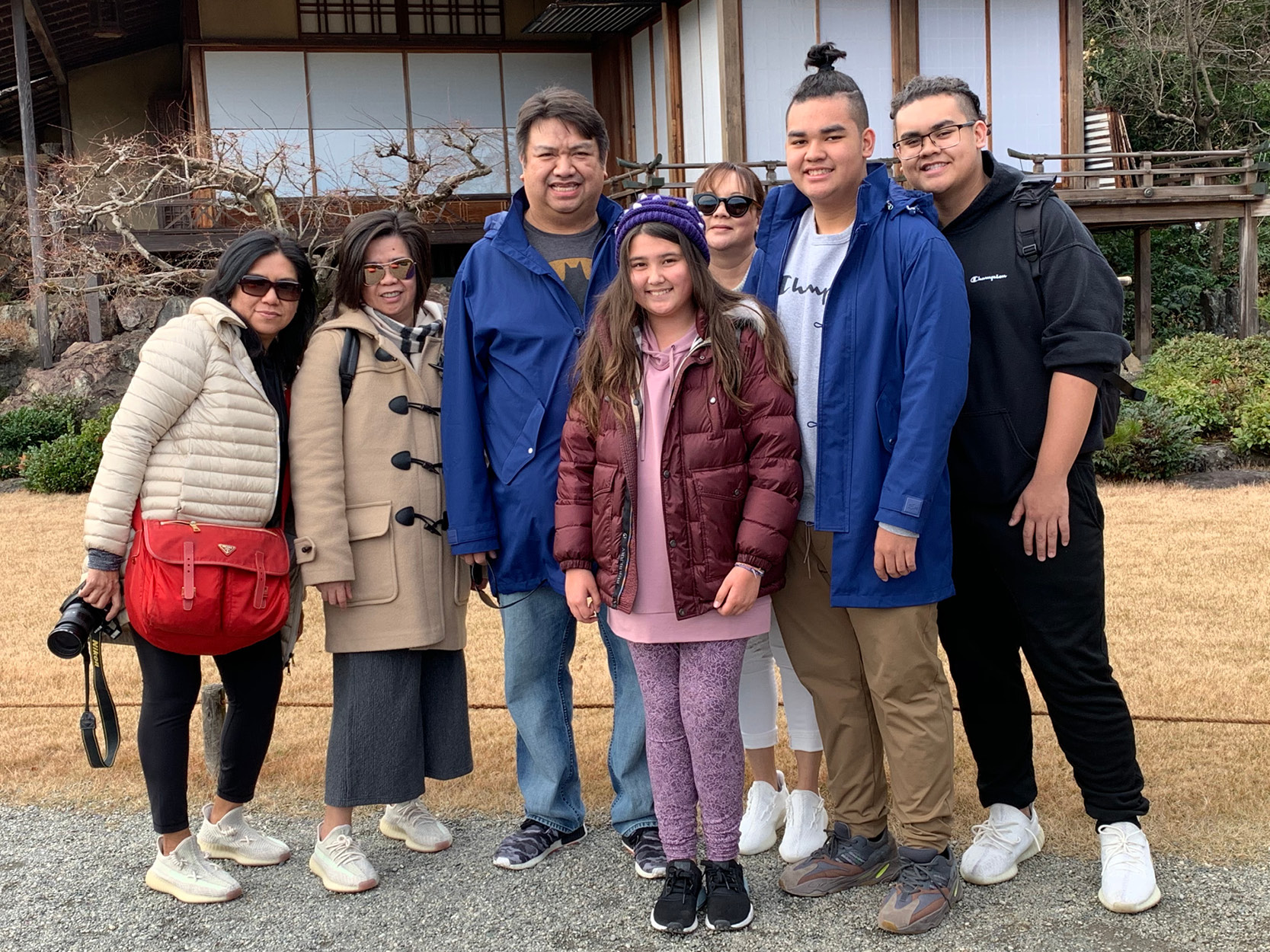
The Impact Blog is a spotlight series that highlights and celebrates the diverse employees that make MGAC tick. Beyond their day-to-day schedules, we want to know how they have a greater impact on their colleagues, their company, and the communities in which they live and work. We want to know what makes them get out of bed in the morning, what led them to their current role, and what they hope their lasting impact will be.
Today, we get to know Analyn Apan, Vice President of Cost Management at MGAC.
—
MGAC: Welcome to the Impact Blog, Analyn!
Analyn Apan (AA): Hi! Thanks for having me.
MGAC: What is your title, and can you describe your role at MGAC in your own words?
AA: My title is Vice President of Cost Management. Working in cost management, in many ways, my role is serving as a trusted advisor to a client. They have a project or a development they need to execute, and they seek our advice on the best way to do it. We’ll assess a budget for them and help set up the project. Once it’s set up, we’ll advise on how to manage it and how to properly allocate the cost of the project. A lot of times, if we’re working with architects, we’ll do some milestone cost estimates, so that at every stage of the design, we validate the project.
MGAC: And, how long have you been with the firm?
AA: I’ve been with MGAC—in the Los Angeles office—eight years now.
MGAC: You were one of the founding employees of our LA office, correct? Can you share a bit about how that came to be?
AA: That’s right; I was part of the five people who started MGAC in LA. We used to work with a firm called Davis Langdon who was acquired by AECOM. Five of us ended leaving AECOM and starting a different firm who was eventually acquired by MGAC to start the LA office. That’s how it all started! Most of us are still here today.
MGAC: Very cool! So, was this line of work always in the cards for you? What did you want to be when you grew up?
AA: There was actually only one job that I wanted to be: an engineer. I grew up in the Philippines and had an engineer role model in my family. As I got older, my skills matched, and I graduated as a structural and civil engineer. But soon after, there was a construction downturn in the Philippines, and I moved over to a Quantity Surveyor (QS) role. It involves contracts, quantity surveying, and cost management, as compared to engineering’s more technical focus on design and construction. I immediately loved QS because instead of just focusing on one aspect of a building, I was able to look at every aspect, from rebar to finishes. I could help analyze it and put it all together. This was back in the early ‘90s. I was with Davis Langdon, which was just starting a practice in the Philippines; they were a pioneer of the QS practice there. So, I managed the first QS projects in the Philippines.
MGAC: Very cool! So how and when did you move to the Los Angeles area?
AA: About 20 years ago, I decided to join my family in the States—I’m one of three kids, and my siblings were already here. During the time I was considering this move, my boss told me that Davis Langdon was planning to open an office in the U.S. He asked if I wanted to be a part of it. I said, “Of course!” So that’s how it started.
MGAC: Wow, so you really took a leap of faith.
AA: It did. I was fortunate that my work paved the way for me to work here. When you’re from another country, it can be really hard to find a job in the States—especially the same level of job you might have in your home country.
MGAC: Safe to say you’ve had an incredible career since coming to the States, especially during your years with MGAC. What keeps you busy these days?
AA: I’m working on three hospital projects right now, and I’m managing multiple other projects in LA in performing arts and higher education. I also train and mentor new hires on the cost management team. It’s something I’ve been doing for a long time now, and I really have a passion for it.
MGAC: That’s a great way to leave an impact on the firm.
AA: I hope so. You learn so much from experience in this line of work. Younger people don’t have that experience yet. So as a team leader, you can either keep your knowledge to yourself, or share it with them. I think it’s important to pass it on. It can really make a difference, and it’s a way to set a plan for success for not only that individual, but the whole team.
MGAC: Do you feel there are any misconceptions about the work your team does?
AA: I think it’s easy for people to think what we do is boring. But I think it’s anything but boring! Our jobs start without any design. It’s just a plan, a program. And you need to put together a cost for that program. For example, take a 300-room hotel. You need to put together a cost for that, being as accurate as possible, without any other knowledge. Later, you’ll need to validate it. Eventually, the design will evolve, but you need to maintain the cost. Some people describe us as operating in the background, but budget can make or break a project. In many ways, it all depends on cost.
MGAC: So true. Operating with such limited knowledge might be a challenge for some, though it’s safe to say you’re comfortable taking on those challenges. Are there any, in particular, that come to mind?
AA: It’s true that I’m more of a technical person, and I “speak the language” of cost and project controls well. But sometimes, it’s hard for me to verbalize my ideas, as English is not my first language. I feel the need to really prove I have the knowledge, the ideas, the skills. But then I remind myself that I absolutely can do these things! At MGAC, I’ve worked on so many major projects, billion-dollar work. I find it’s important to look back and remember that in moments of doubt.
MGAC: Absolutely! Speaking of the company, what at MGAC has made an impact on you?
AA: It means so much that my supervisors have believed in me. They’ve given me the opportunity to work on challenging, high-profile projects. They’re certainly not stopping me from proving myself and moving upward.
MGAC: What have you found most rewarding about your job?
AA: It’s rewarding to see projects you’ve worked so diligently on being built. Many of those I’ve been a part of have been government projects and managing them comes with a big responsibility. After all, you’re spending the public’s money! We’re like the auditor ensuring money is being spent on what’s truly needed, and nothing unnecessary. We are scrutinizing, analyzing, and ultimately validating the contractor’s costs. We’re like the client’s second set of eyes.
MGAC: What gives you energy?
AA: Truly, my job! I love it. I’ve been doing this work for so many years, but I’m still excited every time I start a new project. It’s almost like an art piece for me. When I start setting things up, I can see the end product. I see how it should be presented, and I feel pride in what I’m putting together. Some people think it’s just numbers in a report. But for me, it’s a story.
MGAC: What is your secret to winding down at the end of a long day?
AA: Driving. I live 30 miles from the office! Leaving work and driving home gives me time to reassess what I’ve done for the day and conceptualize what comes next. That’s where my ideas come from.
MGAC: Wow, that must be quite the drive in LA traffic!
AA: It usually takes me a couple of hours. But that’s my way of making my brain work for ideas.
MGAC: What about your secret to starting the morning off on the right foot?
AA: I need to start each morning with a coffee. From there, I have a routine at home—reading the Bible, exercising, and then starting my drive. Once I get to the office, more coffee!
MGAC: Name a book that has made a significant impact on your life.
AA: There are too many! But the first that comes to mind is the Bible.
MGAC: What do you want your lasting impact to be?
AA: I hope my colleagues remember that I always delivered for our clients. I pride myself on ensuring each of our clients feels prioritized every step of the way. Because I work on multiple projects at once, I am almost always starting a new one before finishing another. You must master running them in parallel: asking questions, always communicating. Making them feel prioritized is an important aspect of this work.
MGAC: How about a few rapid-fire questions?
AA: That sounds good!
MGAC: Describe your job in five words or less.
AA: Interesting. Exciting. Important.
MGAC: What’s the first thing you do at work every day?
AA: I’m always the first one in the office, so I turn on the lights! I sit down and start working right away. As people start to come in, I’ll say hi to them.
MGAC: The last thing?
AA: I clean off my desk and take care of my dirty dishes.
MGAC: What’s the weirdest thing we might find in your desk or work bag?
AA: I have a toothbrush, so I can brush my teeth after lunch. I always get comments on it!
MGAC: What’s your go-to weekday lunch?
AA: A salad—I always bring it from home.
MGAC: What’s the most used app on your phone?
AA: Messages and weather.
MGAC: It’s hard to believe that 2021 is coming to a close! What’s your biggest work goal to wrap before the year’s end?
AA: I’ve been working on a benchmark tool that compiles all of our historical project data and can be used to compare / analyze new projects. I want to see it up and running, with people using it this year.
MGAC: Where do you see yourself in five years?
AA: I hope to be spearheading even deeper collaboration between cost management and MGAC’s various services. We work very well together now, but I know there are always opportunities for more integration. For example, the benchmark tool I’m putting together can truly benefit everyone, across services. For me, that’s exciting!
